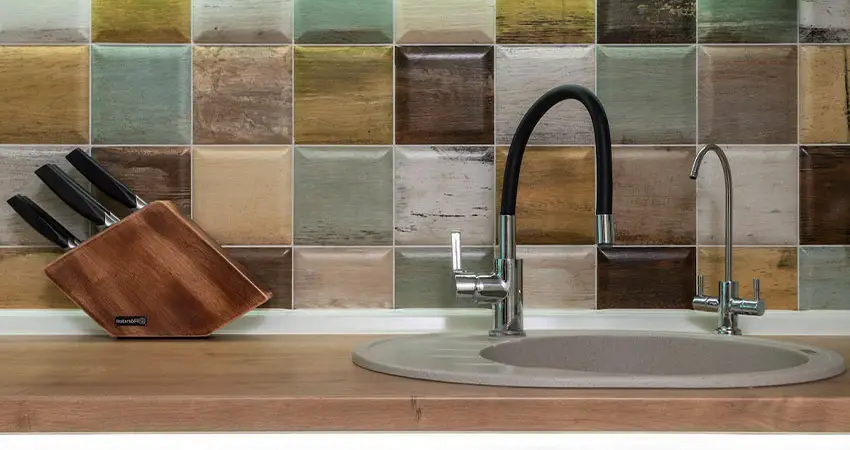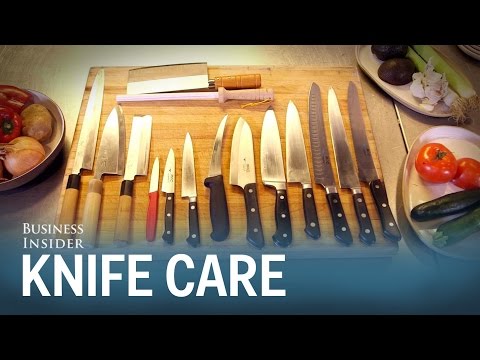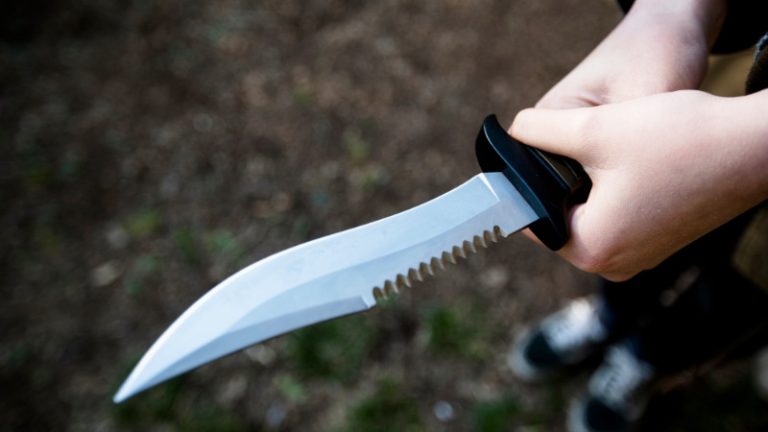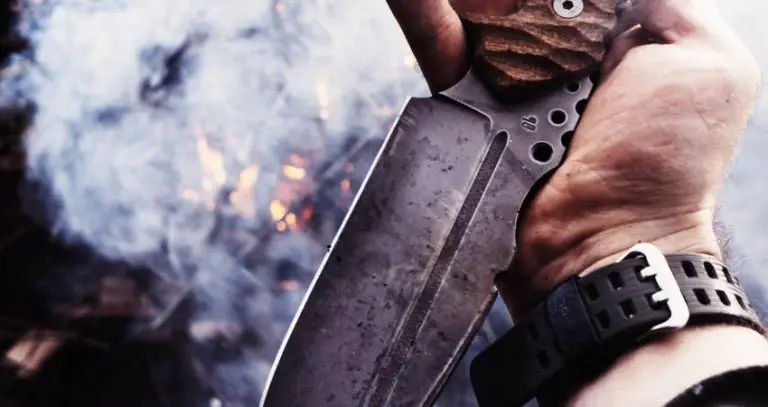5 Reasons Why You Should Never Leave Your Knife In Sink!
It’s a common practice for people to leave their dishes and utensils unattended on the kitchen sink. Moreover, leaving a knife in the sink seems like a trivial matter, but it has quite a few potential risks.
What are the reasons why you should never leave your knife in sink? There are many hazards behind leaving a knife in the sink.
They include rusting, bacterial growth, damage to the sink, reduced lifespan of the knife, etc. Also, leaving the knife in the sink may cause safety hazards too.
In this guide, we will discuss the causes of why you should avoid the situation. We will also have a detailed discussion about a few key pieces of information. So, read the guide till the end!
Table: The Consequences of Leaving Knives In Sink and Vice Versa
Before we run down in detail, let’s take a look into the different harms of leaving your knife in the sink, as well as the benefits of cleaning them!
| Harms of Leaving Knife In the Sink | Benefits Of Ensuring Cleanliness |
| Safety hazard | Efficiency in cutting |
| Prone to rust or corrosion | Maintaining food integrity |
| Bacterial growth | Ensuring better health |
| Damage to the sink | |
| Reduces longevity |
5 Reasons Why You Should Never Leave Your Knife In Sink
Laving a knife in sink can put both the knife and the sink at risk. Take a look at the concerning facts below in detail.
Safety Hazard
One of the top reasons you should not leave the knife in the sink is that it can be a safety hazard.
Knives are quite sharp and can cause injuries or cuts in case you grab them by accident. It can be extremely dangerous in case the sink is accessed by kids or the elderly.
Rust or Corrosion
Rusting or corrosion is a common problem and can destroy your utensils easily. According to Houseownersguide, leaving the knife in sink can cause rusting or corrosion due to the presence of water.
The rust will dull the blade over time and make it difficult to slice or cut things. Not only that but using a rusted utensil can be harmful to health as well.
Bacterial Growth
The sink is not the cleanest place in the home. And it is the breeding ground for several types of bacteria and germs.
Leaving the knives in the sink for a long time can make the utensil a breeding ground for bacteria. And a contaminated blade will significantly increase the risk of food poisoning and other health-related issues.
Damages The Sink
Sinks in our homes are a costly investment. Keeping the knife on the sink can scratch the surface. This not only ruins the appliance’s overall look, but bacterial growth can also occur if the scratches are deep.
And replacing a sink or getting it repaired is costly and not the easiest task to complete.
Reduces Longevity
Last but not least, knives left in the sink for several hours lose their longevity faster compared to knives that are washed properly and regularly.
In a few instances, the handle will come loose, or the blade will lose its shine. And then, you have to replace your old and damaged utensil with a new one.
3 Benefits Of Ensuring The Good Condition Of A Knife
There are several benefits that you can ensure in case you maintain your knife properly. They are as follows.
Efficient Cutting
Proper maintenance of your knife will ensure sharp cutting. Sharp blade chops through fruits, vegetables, meats, etc., faster than a dull blade.
It helps you save time during meal preparation and also reduces the risks of cuts and injuries.
Maintain Food Integrity
Cutting with a dull knife not only wastes time but also causes the food to lose its integrity faster. It takes a lot of pressure for a dull blade to cut through an item and often damages the look of the object.
Additionally, a blunt knife crushes soft fruits and vegetables. And this causes the items to lose their color and taste faster.
Ensuring Health
Using a clean and sharp knife is good for your health. This is because relying on a rusty or bland blade to cut your fruits or other food items can cause health issues.
Not only that, but bacterial growth in utensils is quite common, and cross-contamination can cause food poisoning and other diseases.
To know more about taking care of a knife, follow this video!
FAQs
Read the frequently asked questions below if any questions remain on the topic.
Is Soapy Water Harmful To Knives?
Soapy water does not harm the knife itself but can lead to contamination of the knife, which can eventually be harmful to the person using it!
Does Water Dull A Blade?
Water on steel utensils can cause the blade to rust and lose its sharpness over time. And the blade will become dull faster if you keep it unwashed in the sink for a long time.
Are Knives Prone To Rust?
Stainless steel knives are not. However, not maintaining a knife properly might damage its coating and resulting it to corrode eventually.
Final Words
To ensure the longevity of kitchen appliances and utensils, it is essential to clean and store them properly. Regular cleaning and proper maintenance are also important to prevent health issues and diseases.
Now that you know the reasons why you should never leave your knife in sink. make sure to clean the utensil immediately after use.
This will help you save time and make your knife and sink last for a longer period. But more importantly, ensure better health for you and your family!






